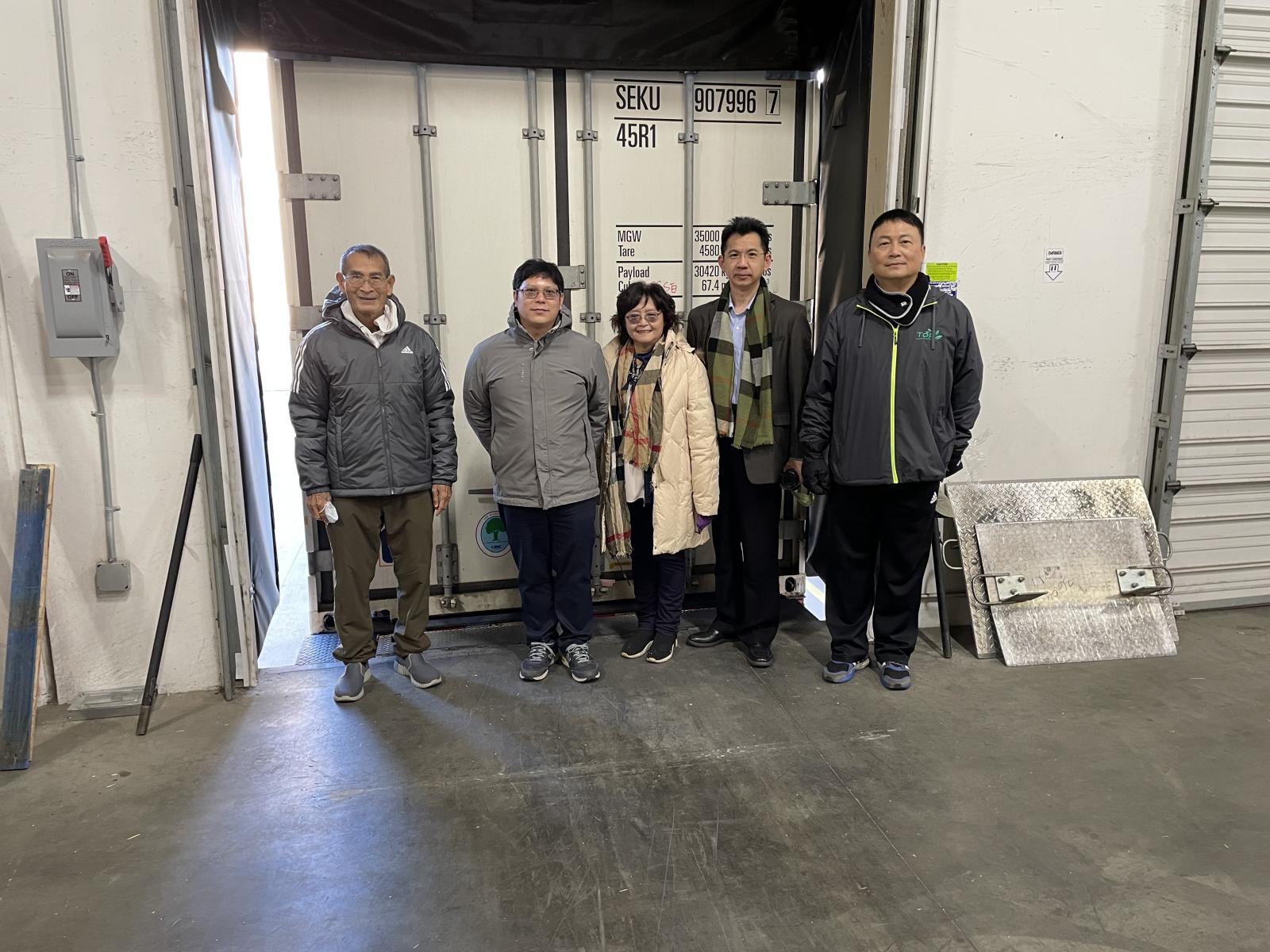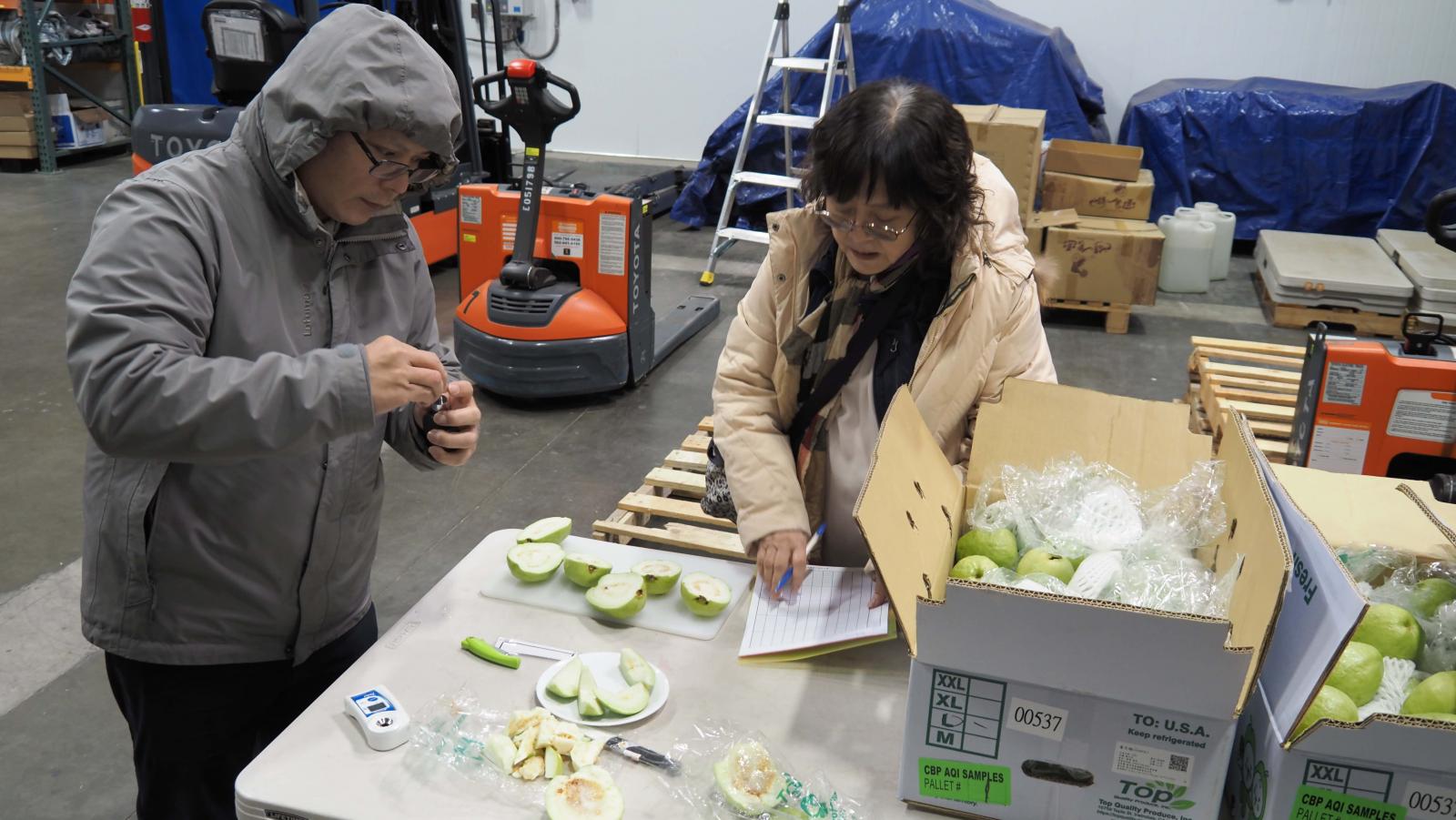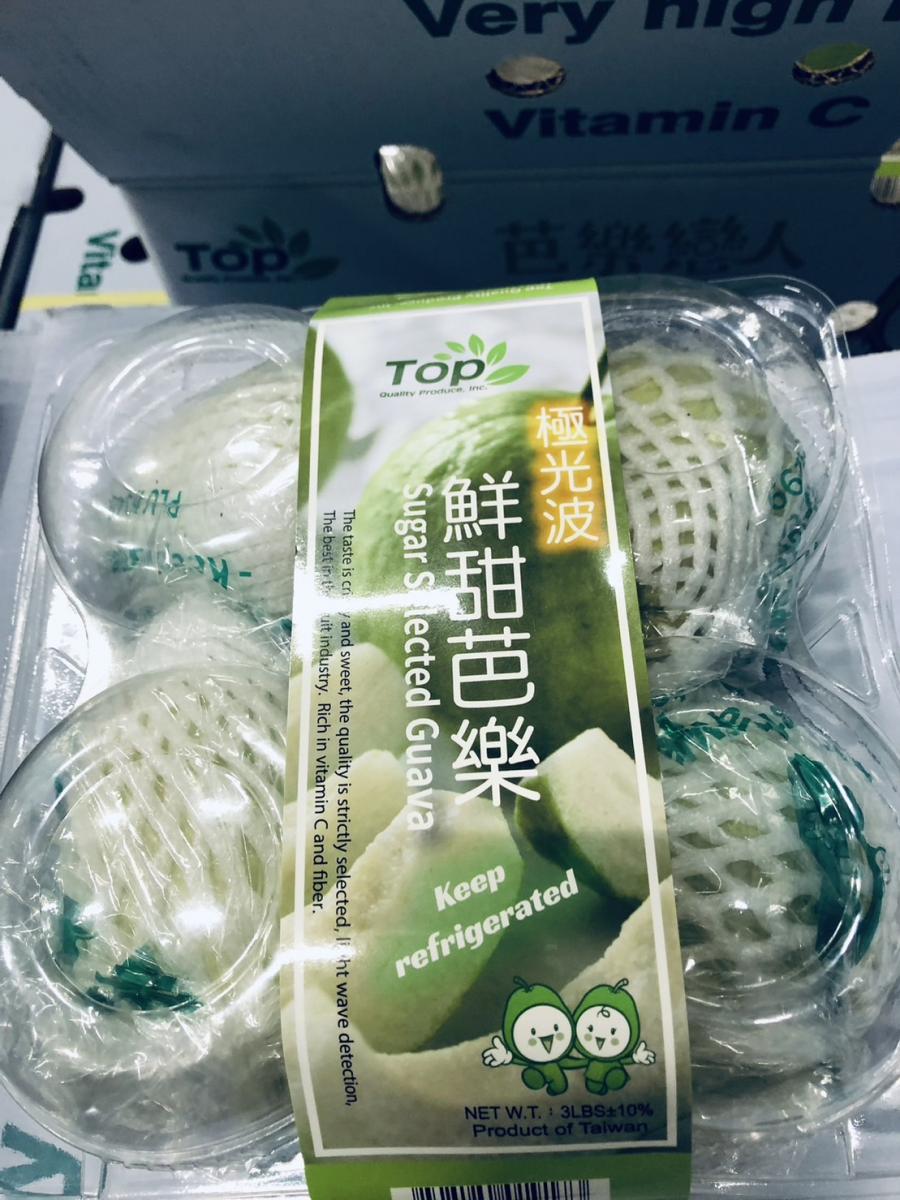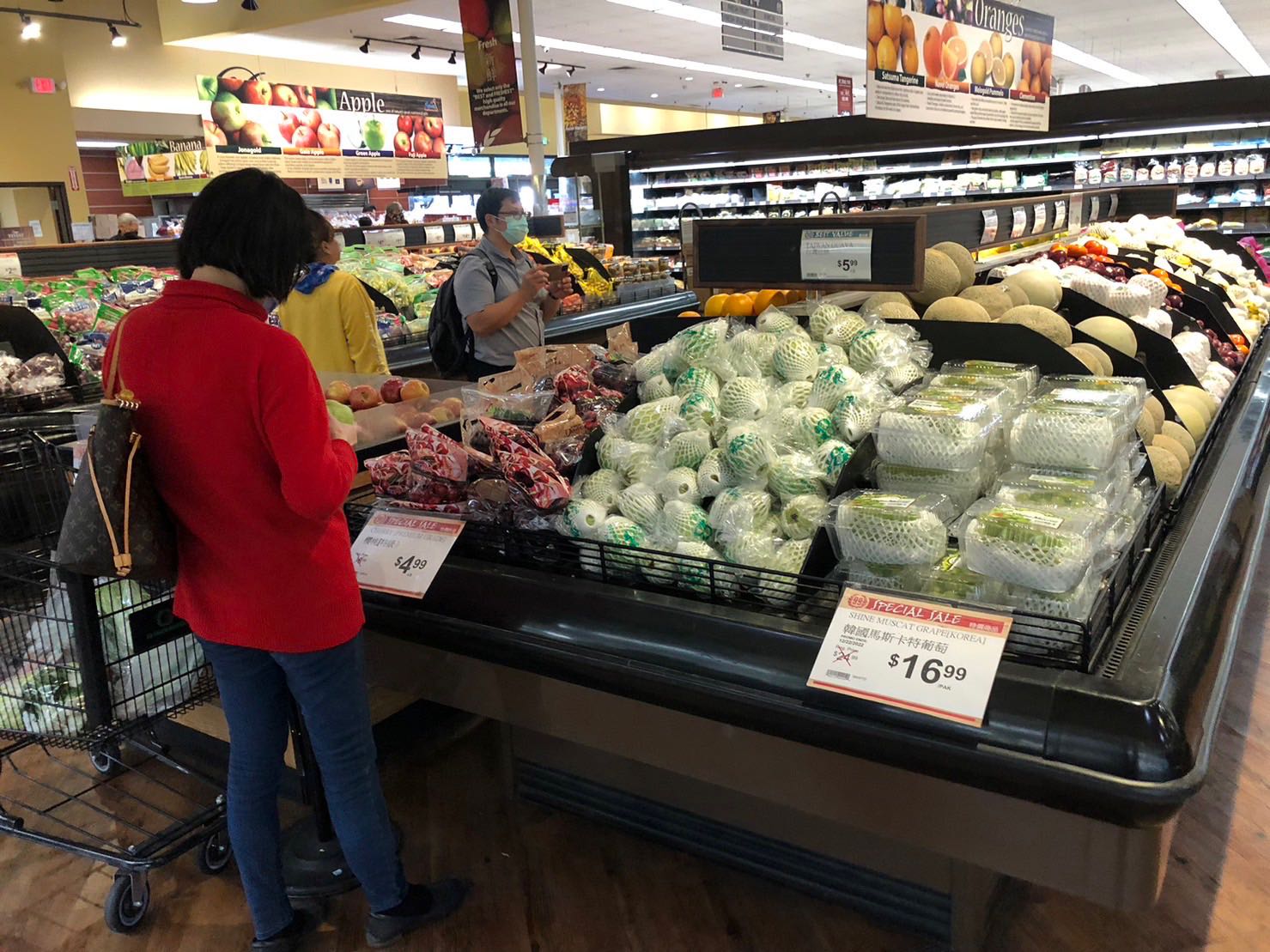Value-added from cold-chain technology utilized by industry and researchers; excellent results for guavas exported to the USA
To optimize the quality of guava fruits exported to the USA, the Council of Agriculture (COA) of the Executive Yuan has encouraged academic and research institutions to participate in the development of long-term storage and transport technology, and has used testing and verification of technology at demonstration sites to accelerate the industrialization of the results of scientific research. Recently, the COA subsidized the Agricultural Technology Research Institute (ATRI) to cooperate with National Chung Hsing University, Yin Chan International Develop Company, and Wan Hai Lines shipping company to use complete-journey temperature controls and precision cold handling to successfully export a 40-foot container of fresh guavas to California. When the container was opened on December 18 (PST) in the USA, over 99% of the guavas qualities were available for sale, and after being repackaged and distributed to sale channel, the guavas remained crispy even after several days, and there was no crystalline softening. In this way the problem of cold leading to a degradation of fruit quality was avoided, greatly increasing the confidence of trading companies and driving substantial increases in guava exports to the USA.

The COA states that the USA agreed to imports of Taiwanese guavas back in 2019 so long as these conformed to USA inspection and quarantine requirements. In the past, when business people in Taiwan exported fresh guavas to the USA, it often happened that the quality was poor as a result of damage from cold temperatures, the quality of delivered products was poor and low salable rate, and that storage time and shelf life were short. The result was that it was profitless to expand sales of Taiwanese guavas to the USA market. In order to ensure the quality of guavas exported to the USA, the COA’s cold-chain technology R&D team conducted multiple experimental tests to gather data in areas starting from in-the-fields management, timing of harvesting of the fruits, and product concentration methods to post-harvest pre-cooling, packaging, temperature controls, and regulation of “breathing” by the fruits. The COA also conducted a simulation test of storage and shipping using a container certified by the U.S. Department of Agriculture in order to confirm the cold-chain requirements and verify fruit quality.

With the relaxation of restrictions that were put in place in response to the COVID-19 pandemic, there has been a gradual restoration of order in international transport and shipping. At the end of 2022, the COA conducted a test to confirm the success of long-distance cold-chain marine shipping technology to export guavas to the USA. This test was conducted through cooperation between Agricultural Technology Research Institute (ATRI), the Department of Horticulture at National Chung Hsing University (the technology R&D unit), Yin Chan International Develop Corporation (a trading company), and Wan Hai Lines LTD. (which provided air-conditioned container shipping). The parties cooperated to pack a 40-foot shipping container which, after inspection and quarantine measures in Taiwan, departed for Los Angeles, California on November 23. There was whole-journey temperature monitored and precision temperature control during the trip. After arrival in Los Angeles on December 18 local time, the container was opened and the quality of the guavas was tested. On the next morning, the American importer repacked and delivering the fruit to their distributing sales channels. Upon arrival at their destinations, the fruits were of excellent quality and were quickly sold through local brick-and-mortar supermarkets in Los Angeles and through e-commerce and group buying platforms.

National Chung Hsing University and ATRI also dispatched staff to go to Los Angeles to inspect the quality of guavas delivered to the USA. Following 26 days of low-temperature transport, and in conformity with the inspection and quarantine requirement that the temperature of the fruit cores should be kept below 1℃ for 17 consecutive days, after the shipping container was opened the external appearance of the fruit was checked and there was sample testing of the fruit and its hardness and sweetness. The quality was found to be excellent and it was estimated that the salable rate for the delivered fruit could reach 99%. In addition, the staffs follow-up investigation during the time the fruit was on sale channels, with visiting and purchasing the fruits to inspect the quality. By inspections and testing, which revealed the quality of the delivered fruit was excellent. After several days on shelves, there was slight brown-spot of the surface of some fruits, but they remained crisp and the cores showed no signs of crystalline softening, indicating that the problem of degradation of the quality of fruit exported to the USA caused by low temperatures had been overcome. Because the quality of the delivered fruit was excellent, this encouraged the willingness of sales channels to sell it and reduced the rate of deductions of payments because of customer complaints and generated greater confidence in market development. Moreover, after learning about the quality of the delivered fruit, the export firm for this project stated that it will plan for further exports.

Guavas produced in Taiwan are packed with nutrients including Vitamin C, antioxidant capacity, and antioxidants were several times the level of kiwifruit and apples. Moreover, their sweetness level is between 8-11°Brix, making them very popular with American consumers. The results of this recent cooperative project involving industry and researchers to export guavas to the USA show that Taiwan has already overcome technical problems with ensuring the quality of exported guavas. Next the COA will share this experience with domestic enterprises and it is anticipated that trading companies will gain confidence in fruit exports and continue to expand exports of Taiwan guavas to the USA.
